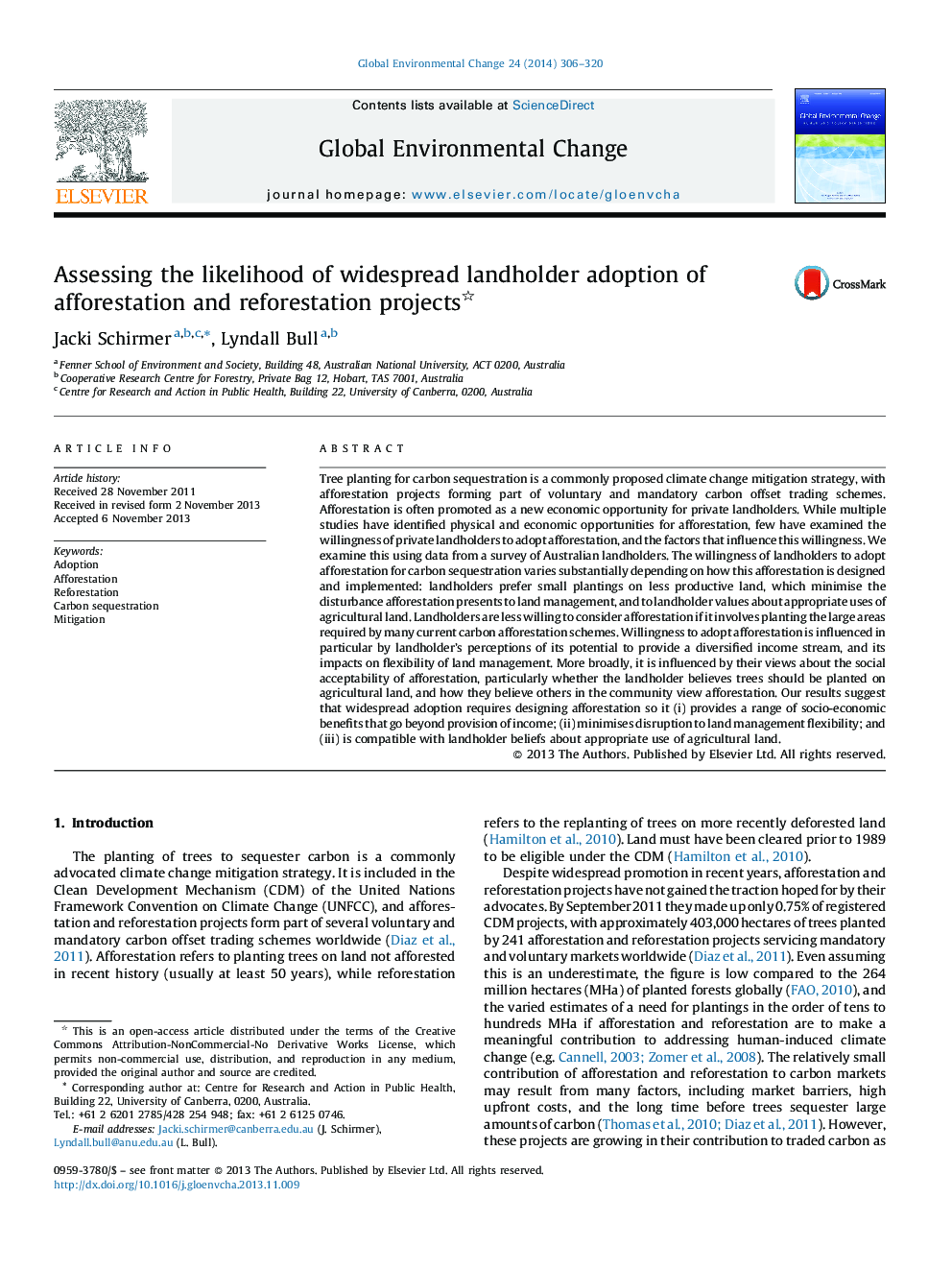| کد مقاله | کد نشریه | سال انتشار | مقاله انگلیسی | نسخه تمام متن |
|---|---|---|---|---|
| 7470726 | 1485134 | 2014 | 15 صفحه PDF | دانلود رایگان |
عنوان انگلیسی مقاله ISI
Assessing the likelihood of widespread landholder adoption of afforestation and reforestation projects
ترجمه فارسی عنوان
ارزیابی احتمال پذیرش زمینگیران گسترده در زمینه طرح های جنگلی و جنگلزدایی
دانلود مقاله + سفارش ترجمه
دانلود مقاله ISI انگلیسی
رایگان برای ایرانیان
کلمات کلیدی
تصویب، جنگل زراعی، جنگل زدایی، تداخل کربن، تسکین دهنده،
موضوعات مرتبط
علوم زیستی و بیوفناوری
علوم محیط زیست
علوم زیست محیطی (عمومی)
چکیده انگلیسی
Tree planting for carbon sequestration is a commonly proposed climate change mitigation strategy, with afforestation projects forming part of voluntary and mandatory carbon offset trading schemes. Afforestation is often promoted as a new economic opportunity for private landholders. While multiple studies have identified physical and economic opportunities for afforestation, few have examined the willingness of private landholders to adopt afforestation, and the factors that influence this willingness. We examine this using data from a survey of Australian landholders. The willingness of landholders to adopt afforestation for carbon sequestration varies substantially depending on how this afforestation is designed and implemented: landholders prefer small plantings on less productive land, which minimise the disturbance afforestation presents to land management, and to landholder values about appropriate uses of agricultural land. Landholders are less willing to consider afforestation if it involves planting the large areas required by many current carbon afforestation schemes. Willingness to adopt afforestation is influenced in particular by landholder's perceptions of its potential to provide a diversified income stream, and its impacts on flexibility of land management. More broadly, it is influenced by their views about the social acceptability of afforestation, particularly whether the landholder believes trees should be planted on agricultural land, and how they believe others in the community view afforestation. Our results suggest that widespread adoption requires designing afforestation so it (i) provides a range of socio-economic benefits that go beyond provision of income; (ii) minimises disruption to land management flexibility; and (iii) is compatible with landholder beliefs about appropriate use of agricultural land.
ناشر
Database: Elsevier - ScienceDirect (ساینس دایرکت)
Journal: Global Environmental Change - Volume 24, January 2014, Pages 306-320
Journal: Global Environmental Change - Volume 24, January 2014, Pages 306-320
نویسندگان
Jacki Schirmer, Lyndall Bull,
